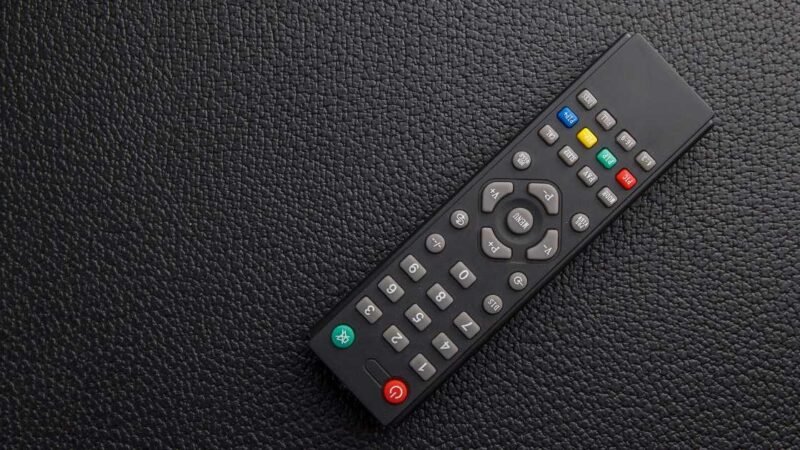Easy Home Appliance Troubleshooting Guide

Appliances like refrigerators, washing machines, ovens, and dryers are vital in every home. When one breaks down, it can cause significant disruption to your daily routine. Before picking up the phone to call a repair technician, consider troubleshooting the issue yourself. Many common appliance problems can be fixed with a little patience and basic knowledge. In this guide, we’ll walk you through essential troubleshooting steps for each appliance, so you can potentially fix the issue on your own and save time and money.
Why Troubleshooting Your Appliance is a Smart First Step
Before calling a professional, here’s why it makes sense to troubleshoot the problem yourself:
- Cost Savings: Many repair technicians charge a diagnostic fee. Sometimes, the issue is a simple fix, and addressing it yourself means avoiding unnecessary fees.
- Prevents Unnecessary Repairs: Often, the problem is small—like a blocked vent or a misaligned setting—that you can handle yourself without needing an expert.
- Learn More About Your Appliances: By understanding the basics, you’ll be able to identify early signs of trouble and fix them before they get worse.
For example, if your refrigerator isn’t cooling properly, it might be due to dirty condenser coils, which are easy to clean. But, if the issue is more complex, like electrical problems, then it’s best to call in a professional.
Troubleshooting Your Appliances: A Quick Checklist
Below, we’ve created an easy-to-follow checklist for troubleshooting common household appliances.
| Appliance | Common Issues | Troubleshooting Steps |
|---|---|---|
| Refrigerator | Poor cooling, water leaks, strange noises | Clean condenser coils, check thermostat, inspect door seals |
| Washing Machine | Won’t drain, excessive noise, leaks | Clean drain filter, check water hoses, balance the load |
| Dishwasher | Poor cleaning, leaks, no drainage | Clean spray arms, inspect filter, check drain hose for clogs |
| Oven | Uneven heating, won’t turn on | Check heating elements, test thermostat, reset circuit breakers |
| Dryer | Clothes not drying, overheating, noise | Clean lint trap, inspect vent ducts, check the drum belt |
How to Troubleshoot Your Household Appliances
Let’s dive into the specifics of troubleshooting each appliance. With these steps, you might save yourself the hassle of calling a technician.
Refrigerator Issues
- Problem: If your refrigerator isn’t cooling properly, it could be because the condenser coils are dirty or the thermostat isn’t set correctly.
- Step 1: Unplug the fridge and clean the condenser coils. This is one of the most common reasons fridges lose cooling efficiency.
- Step 2: Check the thermostat and ensure it is set to the correct temperature (35-38°F / 1-3°C).
- Step 3: Inspect the door seals for cracks or tears. If the seal is damaged, cold air might be leaking, causing the fridge to work harder.
Washing Machine Issues
- Problem: If your washing machine won’t drain or makes loud noises, the issue might be a clogged filter or unbalanced load.
- Step 1: Check the drain filter for blockages. Remove any debris that might be causing a clog.
- Step 2: Inspect the water supply hoses for any kinks or damages.
- Step 3: If the machine is noisy, ensure the load is evenly distributed in the drum. Overloaded or unbalanced loads can cause vibrations and noise.
Dishwasher Issues
- Problem: A dishwasher that doesn’t clean properly or leaks may need some routine maintenance.
- Step 1: Clean the spray arms, as food debris or mineral deposits can clog them.
- Step 2: Check the filter at the bottom of the dishwasher and clean it regularly.
- Step 3: Inspect the drain hose for any blockages that could prevent water from draining correctly.
Oven Issues
- Problem: If your oven is heating unevenly or not turning on, you might have a faulty heating element or thermostat.
- Step 1: Inspect the heating elements for visible damage or burn marks.
- Step 2: Test the thermostat with a multimeter to ensure it is working correctly. If it’s malfunctioning, it may need to be replaced.
- Step 3: Check the circuit breaker to ensure the oven has power. If the breaker is tripped, reset it.
Dryer Issues
- Problem: If your dryer is overheating or not drying clothes properly, the cause could be a blocked vent or a worn-out belt.
- Step 1: Clean the lint trap after every use to avoid airflow restrictions.
- Step 2: Inspect the vent and exhaust hose for blockages. Clear out any debris to ensure proper ventilation.
- Step 3: If the drum isn’t spinning, check the dryer belt. If it’s worn out, it may need replacement.
When to Call a Professional Repair Expert
While many appliance problems are simple to fix, some issues require professional help. You should call an expert if:
- You see sparks or smell burning: If there’s smoke or an electrical smell, this could be a sign of a serious electrical issue.
- Persistent issues after troubleshooting: If the problem remains unresolved after you’ve checked everything, it’s time to call a technician.
- You’re unsure about safety: If you’re unsure about the complexity of the issue or if it involves electrical or gas components, it’s always safer to consult a professional.
Mistakes to Avoid When Fixing Your Appliances
To avoid causing more damage or creating safety risks, here are some common mistakes to steer clear of:
- Ignoring the User Manual: The manual can provide essential troubleshooting steps and preventive maintenance tips.
- Using Harsh Cleaners: Don’t use abrasive cleaners on sensitive appliance parts. Stick to non-abrasive cleaners to avoid damaging components.
- Neglecting Routine Maintenance: Regular cleaning of filters, vents, and seals can prevent future issues and extend the lifespan of your appliances.
- Attempting Complex Repairs Yourself: If you don’t have the necessary knowledge or tools, leave complex repairs—like electrical issues or compressor problems—to the professionals.
How to Find the Right Appliance Repair Expert
If you’ve exhausted your troubleshooting efforts and need professional help, consider the following when choosing a technician:
- Check Credentials: Ensure they have proper licensing and certifications to work on appliances in your area.
- Experience with Your Appliance: Look for someone who has experience with your specific brand and model of appliance.
- Customer Reviews: Look for positive feedback and reviews from previous customers.
- Clear Pricing: Choose a professional who provides transparent pricing and a clear breakdown of what’s included in the repair.
Final Thoughts: DIY vs. Professional Repair
While DIY troubleshooting can save you time and money, it’s important to know when to call in the experts. For simple issues, a little effort on your part might solve the problem. However, for electrical issues or mechanical failures, professional help is essential. Remember, the sooner you address the problem, the less likely it is to cause lasting damage.
If you’re looking for expert appliance repair services, don’t hesitate to contact our licensed technicians who prioritize your safety and satisfaction.
FAQs About Appliance Troubleshooting
Q1: How often should I clean my refrigerator’s condenser coils?
It’s recommended to clean your refrigerator’s condenser coils every 6 months to maintain cooling efficiency. Dust and dirt buildup can cause the fridge to work harder, increasing energy costs.
Q2: My washing machine won’t drain. What should I do?
Check the drain filter for blockages and inspect the water supply hoses for kinks. If the filter and hoses are clear, the issue might be with the pump.
Q3: How can I prevent my dryer from overheating?
Clean the lint trap after every use and ensure the vent ducts and exhaust hose are free from blockages. Proper airflow is key to preventing overheating.
Q4: Why is my dishwasher not cleaning dishes properly?
Clogged spray arms or a dirty filter can reduce cleaning performance. Clean the spray arms and filter regularly to ensure your dishes come out spotless.
Q5: When should I call a repair technician?
If the appliance shows signs of electrical failure, such as sparks or burning smells, or if the problem persists after troubleshooting, it’s time to contact a professional.









